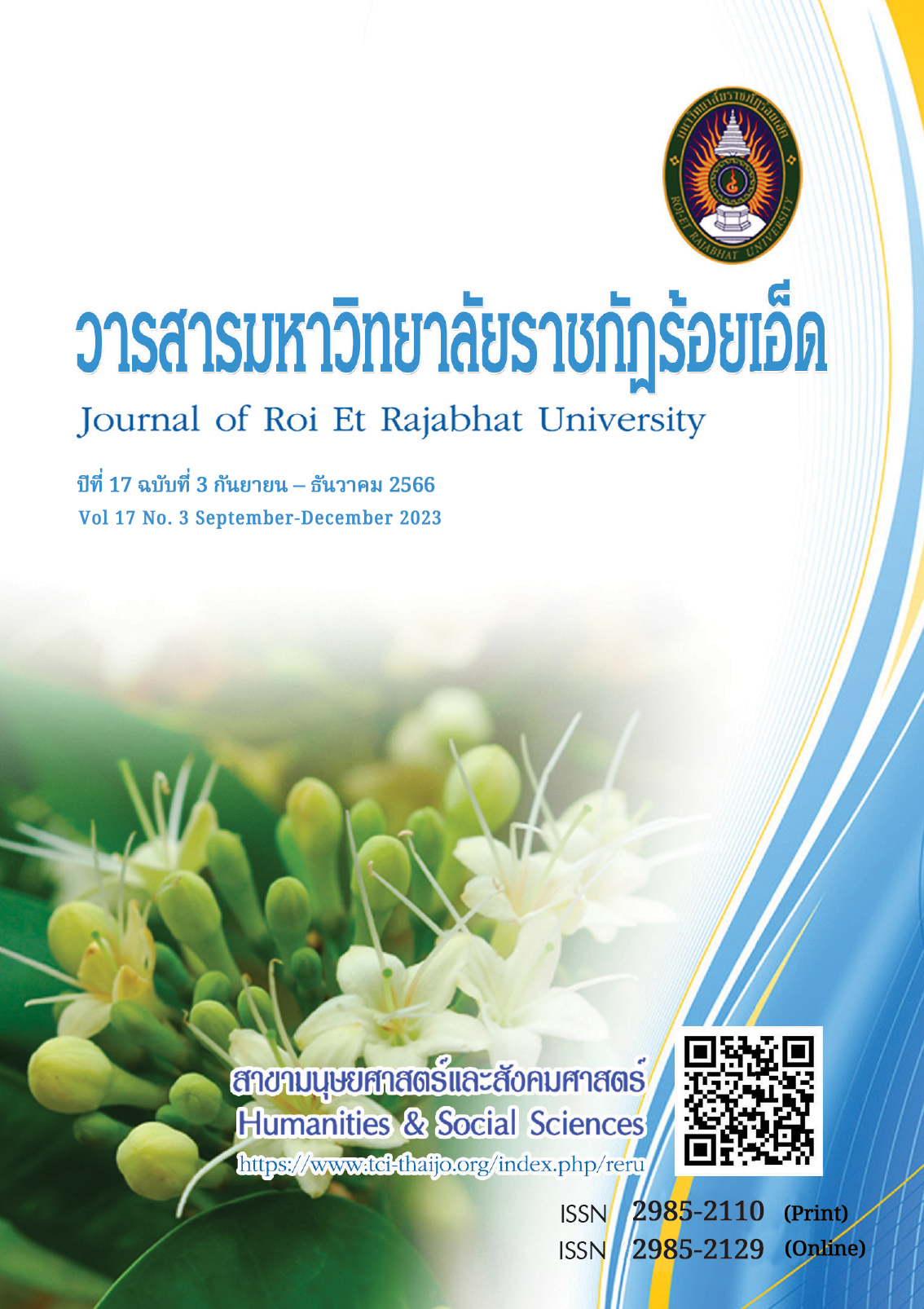Developing English Reading Comprehension Ability and Use of English Tenses through Question Generating Strategy Instruction of EFL Undergraduate Students at Thai-Nichi Institute of Technology, Bangkok
Keywords:
English leading, English tenses, Question generating strategyAbstract
The purpose of this study was to investigate if the implementation of question-generating approach instruction, where students develop their questions, may enhance the reading comprehension skills and proficiency in English tenses of undergraduate learners studying English as a Foreign Language (EFL).
The design of this study conducted a pre-and post-test study with two groups: a control group and an experimental group. The participants were 30 undergraduate students who had enrolled in the Basic English course during the first semester of the academic year 2021. The selection of participants was done using
a purposive sample method.
The participants were randomly assigned to two groups: a control group consisting of 15 individuals and an experimental group consisting of 15 individuals. The data collection process involves administering pre and post-examinations to assess English reading comprehension and proficiency in using tenses.
The experiment was carried out over a duration of 4 weeks, and the hypotheses were evaluated through the application of a statistical t-test. The findings revealed that the experimental group achieved significantly higher scores on the post-tests of English tense usage and reading comprehension compared to the control group. (p<.01).
References
Bae, C. L., Therriault, D. J. and Redifer, J. L. (2019). Investigating the testing effect: Retrieval as a characteristic of effective study strategies. Learning and Instruction, 60(2), 206–214.
Bugg, J. M. and McDaniel, M. A. (2012). Selective benefits of question self-generation and answering for remembering expository text. Journal of Educational Psychology, 104(2), 922–931.
Carrell, P. L. (1988). Interactive text processing: Implication for ESL/Second Language Reading Classrooms. New York: Cambridge University Press.
Dorkchandra, D. (2013). The Effects of Question Generating Strategies Instruction on EFL Freshmen’s Reading Comprehension and Use of English Tenses. Journal of Liberal Arts Prince of Songkla University, 5(2), 33-45.
Kamalizad, J. and Jalizadehb, K. (2011). On the Effect of Question-Generation Reading Strategy on the Reading Comprehension of Iranian Intermediate EFL Learners. Int J Cur Bio Med Sci, 1(4), 136-139.
Mckenna, M. C. and Stahl, K. A. D. (2009). Assessment for Reading Instruction (2nd ed.). New York: Cambridge University Press.
Nazari, M. (2012). The effect of cooperative student-generated questions on their achievements. The Iranian EFL Journal, 8(6), 281-288.
Pan, S. C. and Rickard, T. C. (2018). Transfer of test-enhanced learning: Meta-analytic review and synthesis.
Psychological Bulletin, 144, 710–756.
Pardo, L. S. (2010). What every teacher needs to know about omprehension. In Cappello, M. and Moss, B.(eds) Contemporary Readings in Literacy Education, Thousand Oaks, California: Sage.
Song, D. (2016). Student-generated questioning and quality questions: A literature review. Research Journal
of Educational Studies and Review, 2, 58–70.
Weinstein, Y., McDermott, K. B. and Roediger, H. L. (2010). A comparison of study strategies for passages:
Rereading, answering questions, and generating questions. Journal of Experimental Psychology: Applied, 16(2), 308–316.
Downloads
Published
How to Cite
Issue
Section
License
Copyright (c) 2023 Roi Et Rajabhat University

This work is licensed under a Creative Commons Attribution-NonCommercial-NoDerivatives 4.0 International License.
บทความที่ได้รับการตีพิมพ์เป็นลิขสิทธิ์ของวารสารมหาวิทยาลัยราชภัฎร้อยเอ็ด
ข้อความที่ปรากฏในบทความแต่ละเรื่องในวารสารวิชาการเล่มนี้เป็นความคิดเห็นส่วนตัวของผู้เขียนแต่ละท่านไม่เกี่ยวข้องกับมหาวิทยาลัยราชภัฎร้อยเอ็ด และคณาจารย์ท่านอื่นๆในมหาวิทยาลัยฯ แต่อย่างใด ความรับผิดชอบองค์ประกอบทั้งหมดของบทความแต่ละเรื่องเป็นของผู้เขียนแต่ละท่าน หากมีความผิดพลาดใดๆ ผู้เขียนแต่ละท่านจะรับผิดชอบบทความของตนเองแต่ผู้เดียว





